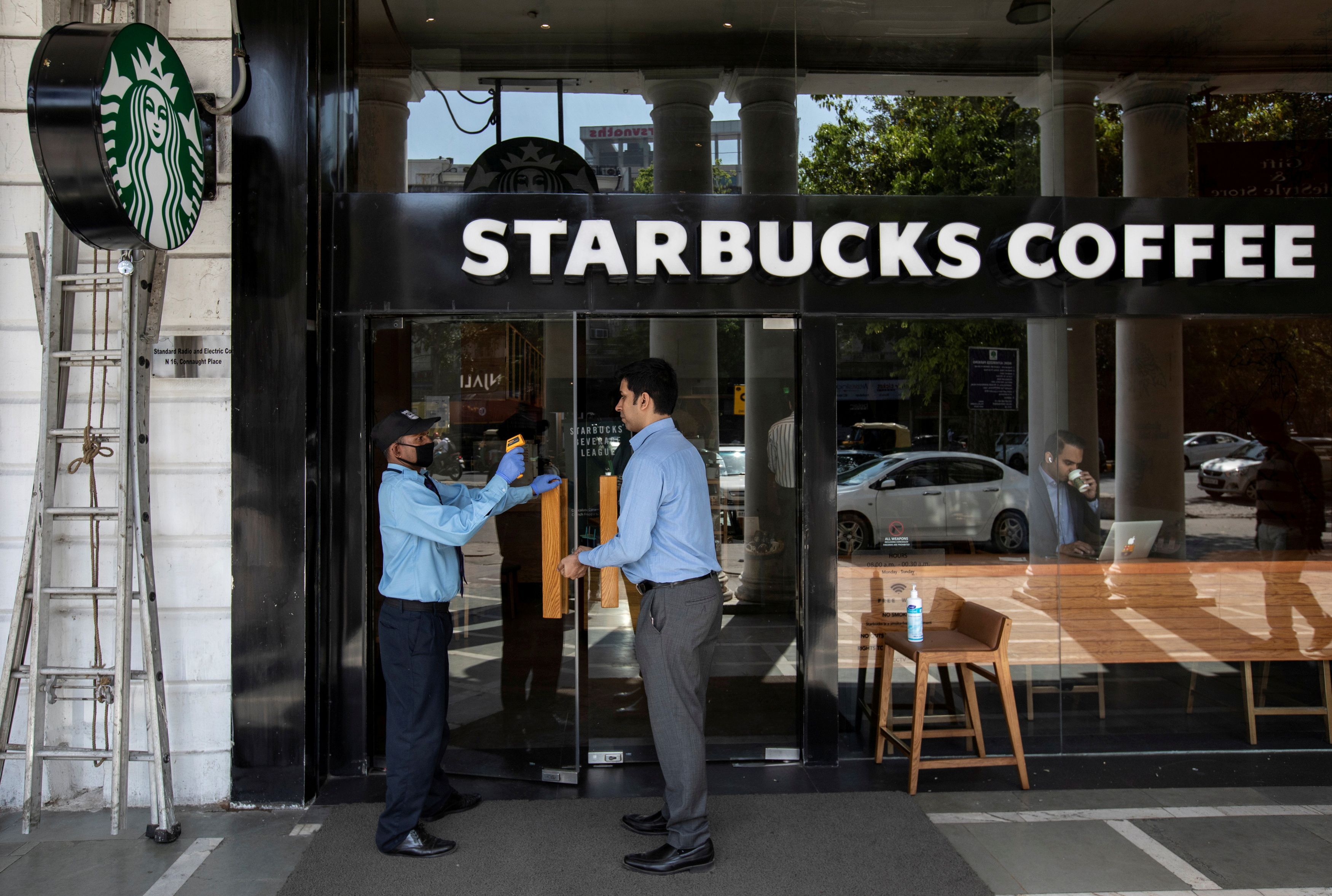The End of Anonymity: Uncovering the Dark Side of Starbucks' Open Door Policy
In a world where digital footprints follow us everywhere, the concept of privacy has become a hotly debated topic. While some argue that technology has made our lives easier and more connected, others believe that it has eroded our right to anonymity. Recently, Starbucks has sparked a wave of controversy with its open door policy, leaving many to wonder: is this the end of privacy as we know it? In this article, we'll delve into the world of Starbucks' open door policy, exploring its implications on individual freedom and the limits of corporate accountability.
As we navigate our daily lives, we often find ourselves in situations where we're expected to disclose more about ourselves than we'd like. From social media profiles to online banking, our personal data is being collected and used in ways that were previously unimaginable. Starbucks' open door policy takes this concept to a whole new level, where employees are empowered to snoop and report on customers' behavior. While the company claims that this policy is designed to enhance customer experience and prevent shoplifting, many are left questioning the ethics of such a practice.
The Origins of the Open Door Policy
The open door policy at Starbucks has its roots in the company's history. In 1985, Jerry Baldwin, one of the founders of Starbucks, was shocked to discover that a friend had been barred from a store due to his appearance. This incident led Baldwin to realize that he wanted to create a workplace where everyone felt welcome, regardless of their background or appearance. The open door policy was born out of this desire to create a sense of community and belonging.
Key Features of the Open Door Policy
So, what exactly does Starbucks' open door policy entail? In a nutshell, it's a system where employees are encouraged to report on customers' behavior to management. This can include anything from suspicious transactions to theft, as well as more sensitive information such as a customer's mental or physical health. While the company claims that this policy is designed to enhance customer experience, many are left wondering if it's a slippery slope that could lead to a loss of individual freedom.
The Dark Side of the Open Door Policy
So, what are the potential consequences of Starbucks' open door policy? For one, it raises serious concerns about customer anonymity. In a world where we're already used to being tracked and monitored, the idea that our behavior is being scrutinized by employees is both unsettling and invasive. Moreover, the policy creates a culture of fear, where customers are reluctant to express themselves or engage in behavior that might be perceived as suspicious.
Examples of the Open Door Policy in Action
- In one reported incident, a customer was banned from a store after an employee overheard them discussing a potential robbery.
- Another customer was asked to leave after an employee spotted them taking a photo of the store's security cameras.
- In a shocking example, a customer was reportedly told by an employee that they were being watched and that their behavior was being monitored.
The Psychology of the Open Door Policy
But why do employees feel the need to report on customers' behavior? According to psychologists, this behavior is often driven by a desire for social approval and a need to belong. In a workplace where employees are encouraged to report on customers, they may feel pressure to conform to certain norms and values. This can lead to a culture of vigilantism, where employees take it upon themselves to enforce the rules and monitor customer behavior.
The Impact on Customer Experience
So, what's the impact of the open door policy on customer experience? In theory, the policy should enhance customer experience by making stores feel safer and more welcoming. However, in practice, it can have the opposite effect. Customers may feel uncomfortable or anxious about being monitored, leading to a decrease in customer satisfaction and loyalty.
The Rise of the Surveillance State
Starbucks' open door policy is just the tip of the iceberg in a world where surveillance is becoming increasingly prevalent. As we move forward, it's essential to consider the implications of such policies on our individual freedom and the limits of corporate accountability. In a world where we're already living in a surveillance state, the question is: where do we draw the line between security and privacy?
The Future of the Open Door Policy
As the debate around Starbucks' open door policy continues to rage, it's essential to consider the future of such policies in general. Will we see more companies adopting similar policies, or will this incident mark a turning point in the way we think about customer experience and corporate accountability? One thing is certain: the future of the open door policy will be shaped by our collective response to this controversy.
The Role of the Consumer
Ultimately, the future of the open door policy lies in the hands of the consumer. As consumers, we have the power to choose which companies we support and which policies we find acceptable. In a world where we're already living in a surveillance state, it's essential to consider the implications of such policies on our individual freedom and the limits of corporate accountability.
Conclusion
In conclusion, Starbucks' open door policy raises serious questions about customer anonymity, corporate accountability, and the limits of individual freedom. While the company claims that this policy is designed to enhance customer experience, many are left wondering if it's a slippery slope that could lead to a loss of anonymity. As we move forward, it's essential to consider the implications of such policies on our collective future.
Kaitlyn Kremsd
Goblin Cave
Amariah Moralesd
Article Recommendations
- Chaun Woo Parents Nationality
- Sabrina Carpenter Height In Feet
- Skyes In 2024
- Local Google Ranking Check
- Lee Majors
- Elliot Timpf
- Cassie Parents
- Who Isteve Harvey Voting For
- Is Jennifer Lopez Pregnant
- Sophie Rainpiderman



